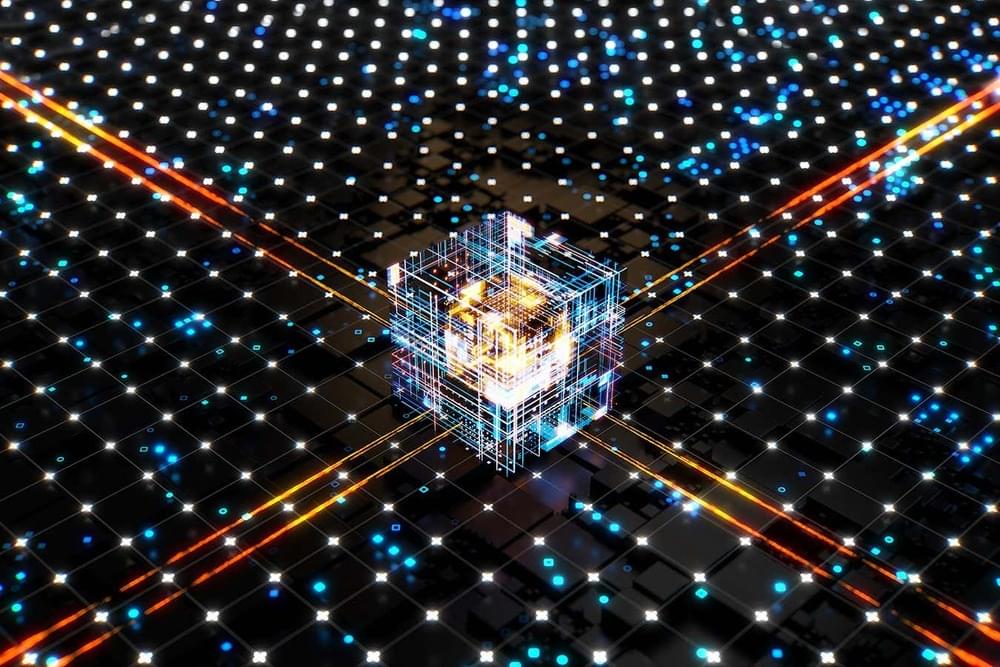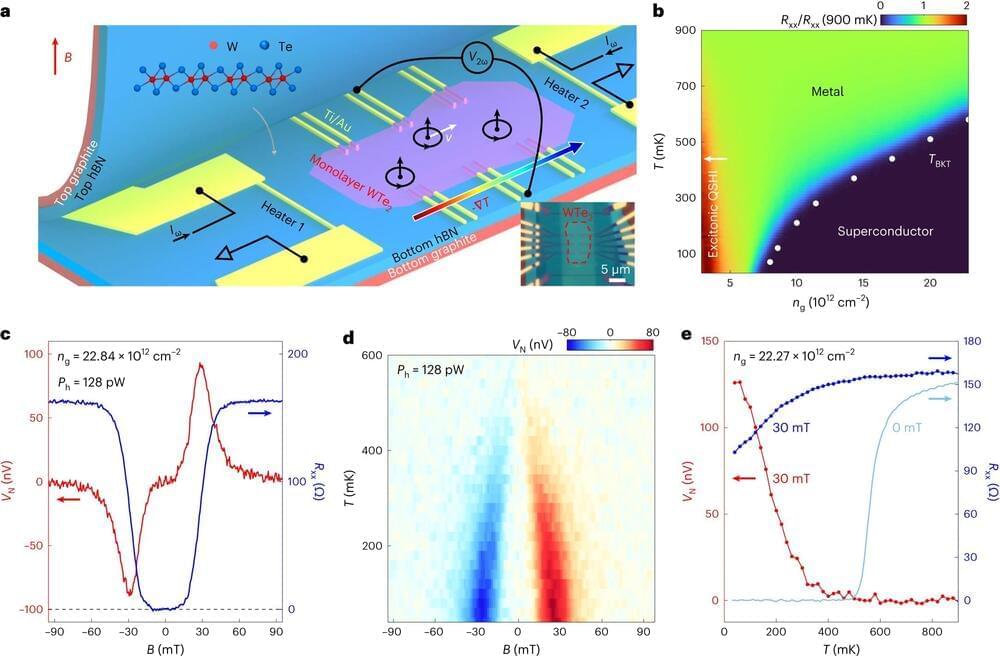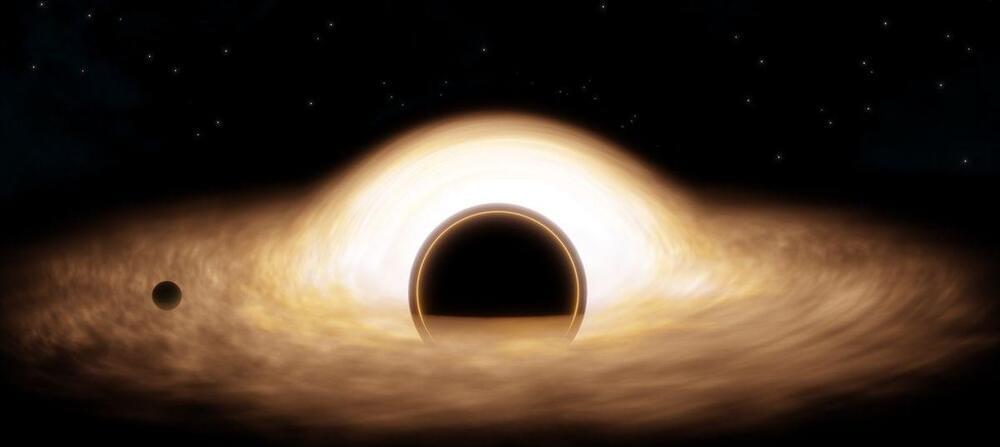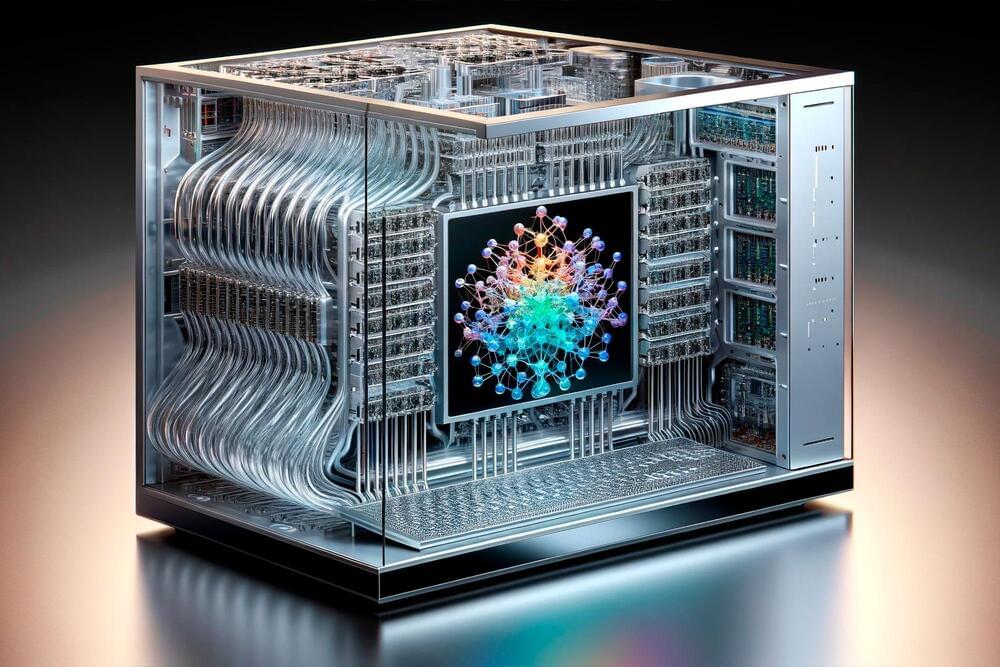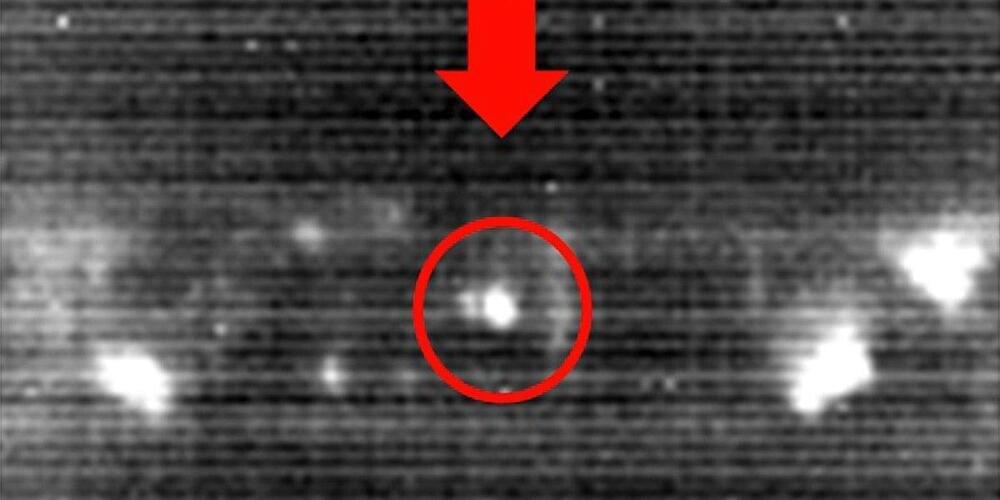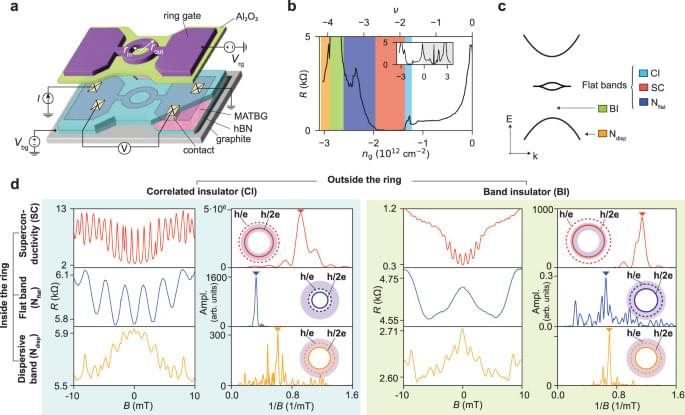A secure exchange between a merchant and a buyer has been successfully tested as a proof of concept using a small quantum computing network in China.
Category: quantum physics – Page 280
Princeton physicists have discovered an abrupt change in quantum behavior while experimenting with a three-atom-thin insulator that can be easily switched into a superconductor.
The research promises to enhance our understanding of quantum physics in solids in general and also propel the study of quantum condensed matter physics and superconductivity in potentially new directions. The results were published in the journal Nature Physics in a paper titled “Unconventional Superconducting Quantum Criticality in Monolayer WTe2.”
The researchers, led by Sanfeng Wu, assistant professor of physics at Princeton University, found that the sudden cessation (or “death”) of quantum mechanical fluctuations exhibits a series of unique quantum behaviors and properties that appear to lie outside the purview of established theories.
Year 2014 Basically once the master qubit is found it could even lead to a sorta master algorithm. Also it could show who actually pulls the strings of reality.
Whatever the u-bit is, it rotates quickly (Image: Natalie Nicklin)
Our best theory of nature has imaginary numbers at its heart. Making quantum physics more real conjures up a monstrous entity pulling the universe’s strings
Leader: “The u-bit may be omniscient, but it’s no God particle”
The key to understanding our universe lies in two theories—one of the generally-very-big and one of the generally-very-small. Albert Einstein’s Theory of General Relativity explains things like gravity and time, while Quantum Field Theory explores the subatomic world. However, one celestial object frustrates astrophysicists and quantum theorists in equal measure: black holes.
Because black holes release Hawking radiation (named for famous physicist Stephen Hawking), they eventually evaporate, which seemingly destroys the information that fell into the black hole. However, quantum field theory states that information cannot be destroyed. Result? Paradox.
PRESS RELEASE — Scientists are working on a new device that could lead to a reduction in the number of people who go blind from age-related macular degeneration (AMD). Researchers at Centre for Eye and Vision Research (CEVR) are using quantum technology to detect the disease in its early stages where treatment may help preserve vision.
As part of a visit during the recent Hong Kong Laureate Forum, young scientists from across the world learned how the new low-cost ophthalmic diagnostic device could be part of routine GP and outpatient check-ups.
AMD which affects more than 200 million people worldwide, causes changes to the macula, which can lead to problems with central, detailed vision.
Dr. Avshalom Cyrus Elitzur (Hebrew: אבשלום כורש אליצור; born 30 May 1957) is an Israeli physicist, philosopher and professor at Chapman University. He is also the founder of the Israeli Institute for Advanced Physics. He obtained his PhD under Yakir Aharanov. Elitzur became a household name among physicists for his collaboration with Lev Vaidman in formulating the “bomb-testing problem” in quantum mechanics, which has been validaded by two Nobel-prize-winning physicists. Elitzur’s work has sparked extensive discussions about the foundations of quantum mechanics and its interpretations, including the Copenhagen interpretation, many-worlds interpretation, and objective collapse models. His contributions have had a profound impact on both physics and philosophy, influencing debates about measurement, the role of observers, and the ontology of quantum states. Elitzur has also engaged in discussions about consciousness, the arrow of time, and other foundational topics, including a recent breakthrough in bio-thermodynamics and the “ski-lift” pathway.
Elitzur’s Google Scholar page: https://tinyurl.com/5n7a8hd6
Elitzur’s Wikipedia page: https://en.wikipedia.org/wiki/Avshalo…
IAI Article: https://iai.tv/articles/a-radical-new…
Powerpoint presentation: Pending.
A new study shows how quantum computing can be harnessed to discover new properties of polymer systems central to biology and material science.
The advent of quantum computing is opening previously unimaginable perspectives for solving problems deemed beyond the reach of conventional computers, from cryptography and pharmacology to the physical and chemical properties of molecules and materials. However, the computational capabilities of present-day quantum computers are still relatively limited. A newly published study in Science Advances fosters an unexpected alliance between the methods used in quantum and traditional computing.
The research team, formed by Cristian Micheletti and Francesco Slongo of SISSA in Trieste, Philipp Hauke of the University of Trento, and Pietro Faccioli of the University of Milano-Bicocca, used a mathematical approach called QUBO (from “Quadratic Unconstraint Binary Optimization”) that is ideally suited for specific quantum computers, called “quantum annealers.”
QuEra, a quantum computing startup founded by researchers from Harvard and the Massachusetts Institute of Technology, recently released what may be the most ambitious quantum technology roadmap we’ve seen yet.
The company plans on releasing a quantum computer with 100 logical qubits and 10,000 physical qubits by 2026. It also claims this planned system will demonstrate “practical quantum advantage,” meaning they’d be capable of useful computation feats that classical, binary computers aren’t.
Producing photons one at a time on demand at room temperature is a key requirement for the rollout of a quantum internet—and the practical quantum computers that would undergird that network. The photons can be used as quantum bits (qubits), the quantum equivalent of classical computing’s 0s and 1s. Labs around the world have devised various ways to generate single photons, but they can involve complex engineering techniques such as doped carbon nanotubes or costly cryogenically-cooled conditions. On the other hand, less complicated techniques such as using traditional light sources do not provide the necessary level of control over single-photon emissions required for quantum networks and computers.
Now, researchers from Tokyo University of Science (TUS) and the Okinawa Institute of Science and Technology have collaborated to develop a prototype room temperature single-photon light source using standard materials and methods. The team described the fabrication of the prototype and its results in a recent issue of the journal Physical Review Applied.
“Our single-photon light source … increases the potential to create quantum networks—a quantum internet—that are cost-effective and accessible.” —Kaoru Sanaka, Tokyo University of Science.
Gate-defined superconducting moiré devices offer high tunability for probing the nature of superconducting and correlated insulating states. Here, the authors report the Little–Parks and Aharonov–Bohm effects in a single gate-defined magic-angle twisted bilayer graphene device.
